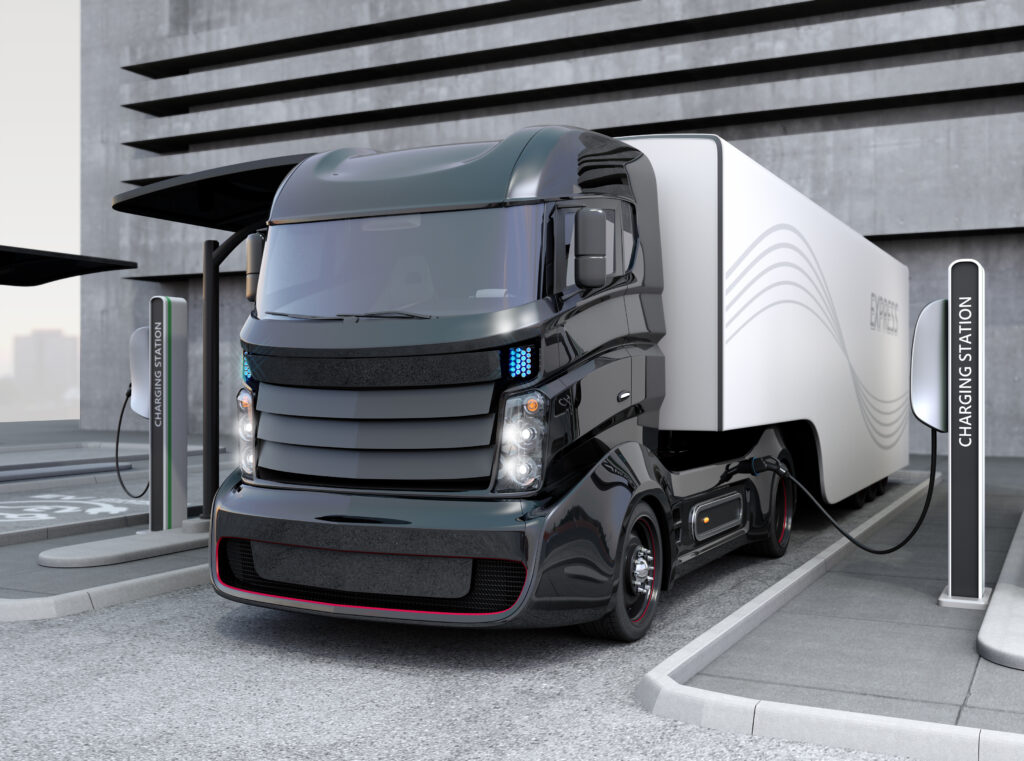Trucking is on the cusp of a revolution, and the electric truck charging station is the beating heart of this transformation. As the automotive industry shifts towards cleaner and more sustainable alternatives, electric trucks have emerged as a promising solution to reduce emissions and operational costs. With companies increasingly embracing electric truck fleets, the establishment and expansion of charging infrastructure is paramount. In this article, we delve into the world of electric truck charging stations and explore their pivotal role in shaping the future of trucking.
The Electric Truck Revolution
The rise of electric trucks is driven by several key factors. First and foremost is the global push to reduce greenhouse gas emissions and combat climate change. Traditional diesel-powered trucks are notorious for their carbon footprint, making them a prime target for electrification1. Companies like Tesla, with their electric Semi truck, and Rivian, with their R1T electric pickup, are leading the charge in this shift towards sustainable trucking solutions2.
Secondly, the economic advantages of electric trucks cannot be overlooked. While the upfront cost of electric trucks can be higher than their diesel counterparts, they offer substantial long-term savings3. Case studies from companies like UPS, which has added electric delivery trucks to its fleet, demonstrate the cost-effectiveness of electric trucks over time4.
The Crucial Role of Charging Infrastructure
To fully unlock the potential of electric trucks, a robust and widespread charging infrastructure is essential. This is where electric truck charging stations come into play. These stations are strategically located along major transportation routes, highways, and logistics hubs to ensure that electric trucks can travel long distances without worrying about running out of power.
Charging stations for electric trucks are designed to accommodate the unique needs of these heavy-duty vehicles. They offer high-capacity charging options, typically ranging from 50 kW to 350 kW and beyond, allowing trucks to charge quickly and efficiently. Many stations also feature multiple charging plugs to cater to several trucks simultaneously, minimizing wait times.
Charging Technologies
Electric truck charging stations employ various charging technologies to cater to different trucking needs:
- DC Fast Charging: This technology provides rapid charging, making it ideal for long-haul truckers who need quick turnarounds5. Companies like Electrify America are rolling out high-powered DC fast-charging stations along major highways to support electric truck adoption6.
- Overnight Charging: For fleets that return to a central depot every night, slower overnight charging may be sufficient. These chargers can be less powerful but are designed for convenience and cost-effectiveness7.
- Battery Swapping: Some charging stations are experimenting with battery swapping technology, where a depleted battery is exchanged for a fully charged one. This allows for virtually uninterrupted operation, as swapping a battery takes minutes compared to hours of charging8.
The Road Ahead
The electrification of trucking is not without its challenges. One of the primary concerns is the need for a reliable and extensive charging network. Government incentives and private investments are crucial in accelerating the deployment of electric truck charging stations9.
Moreover, standardization of charging connectors and protocols is essential to ensure interoperability among different truck brands and charging infrastructure providers10. Companies like Volvo, which recently announced its electric trucks, are collaborating with industry partners to establish common charging standards11.
In conclusion, electric truck charging stations are a pivotal component of the future of trucking. They enable the widespread adoption of electric trucks, reducing emissions, cutting operational costs, and driving the industry towards a more sustainable and efficient future. As technology advances and the charging infrastructure expands, we can expect electric trucks to become an increasingly common sight on our highways, transforming the way goods are transported and setting a new standard for eco-friendly logistics.
Footnotes
- Environmental and Energy Study Institute (EESI) – Heavy-Duty Trucks ↩
- Tesla Semi | Rivian R1T ↩
- Electric Vehicle Fleet Savings Calculator ↩
- UPS – Electric Vehicles ↩
- Green Car Reports – DC Fast Charging: What It Is and Why It’s Not as Popular as You Might Think ↩
- Electrify America – Charging Solutions ↩
- ChargePoint – Commercial Fleet Charging ↩
- The Verge – China’s NIO Delivers 500 Battery Swapping Stations ↩
- U.S. Department of Energy – Heavy-Duty Electric Vehicle Charging Infrastructure ↩
- SAE International – Charging Electric Vehicles and Plug-In Hybrids ↩
- Volvo Trucks – Charging ↩
